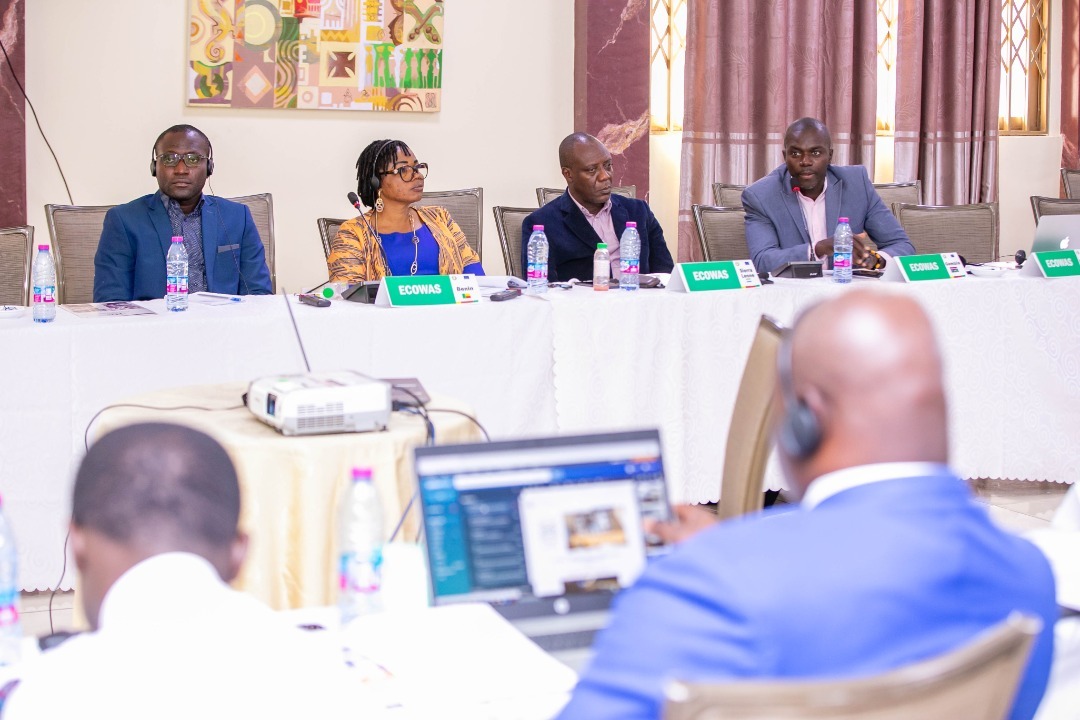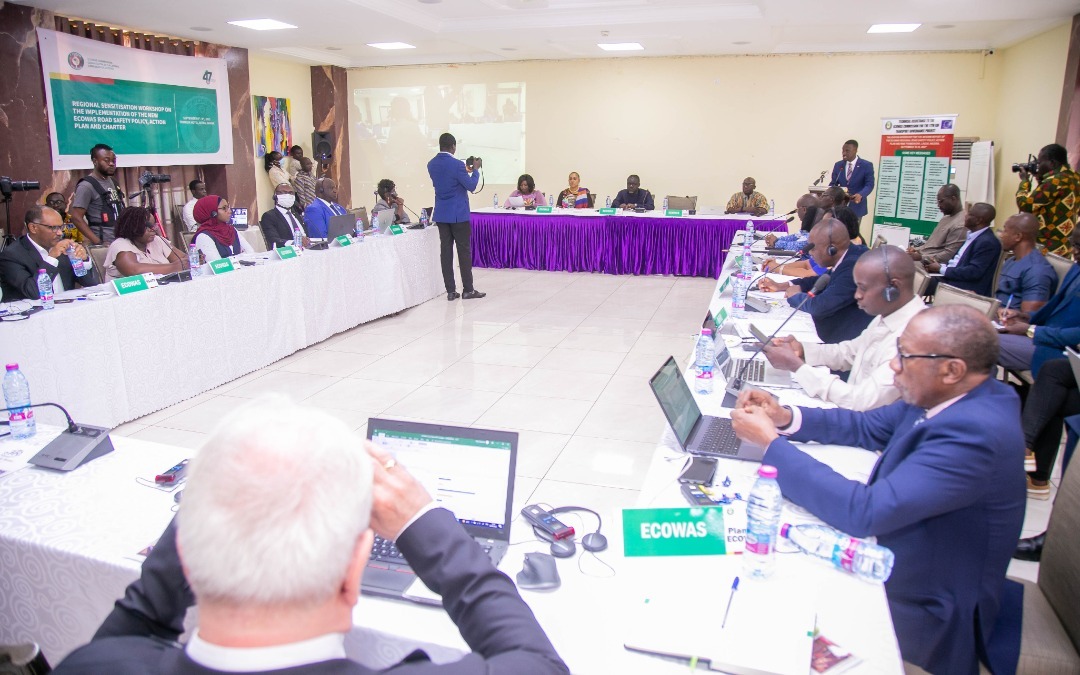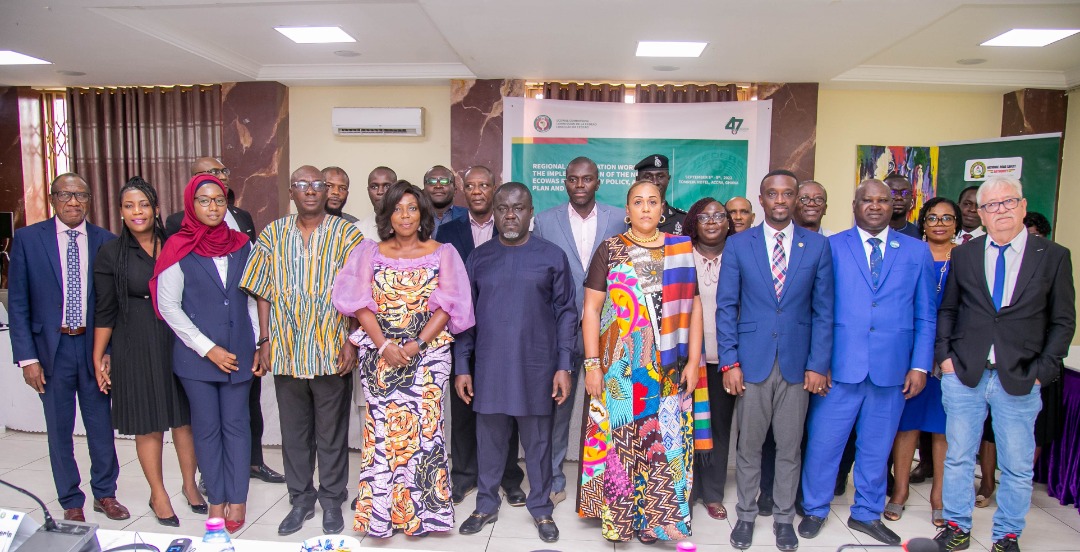ECOWAS, MEMBER STATES AND STAKEHOLDERS AGREE ON “SMART” ACTIONS TO REDUCE ROAD TRAFFIC DEATHS AND INJURIES BY AT LEAST 50% BY 2030 THROUGH THE RIGOROUS IMPLEMENTATION OF THE NEW REGIONAL ROAD SAFETY POLICY & CHARTER
09 Sep, 2022Accra, September 9, 2022 – ECOWAS through the Department of Infrastructure, Energy and Digitalization has organized a regional sensitization workshop on the implementation of the new ECOWAS Road Safety Policy, Action Plan and Charter in Accra, Ghana from 8 – 9 September 2022. The new ECOWAS Road Safety Policy, Charter, Action Plan, and Monitoring & Evaluation (M&E) Framework prepared under the Regional Transport Governance for West Africa Technical Assistance Project with financing support from EU, was approved at the 60th summit of the Authority of Heads of State and Government on 12th December 2021.
In his welcome address, the ECOWAS Commissioner for Infrastructure, Energy and Digitalization, Mr. Sediko Douka whose speech was read by Mr. Chris Appiah, Ag. Director, Transport, welcomed participants to the workshop. He said the main objective of the workshop is to seek the buy-in of Member States, Stakeholders and Partners on the newly approved Regional Road Safety Policy, Charter, and its Action Plan. He explained that the intention is to bring all hands-on deck as we fight together and better coordinate actions towards the reduction of fatalities on our national and regional road corridors.
He added that “this is also intended to provide an ECOWAS’ response to the United Nations Second Decade of Action for Road Safety with the global goal to reduce road traffic deaths and injuries by at least 50 per cent by 2030. At the end of the day, we will agree on workable modalities to satisfactorily accomplish the interventions in our Action Plan within the stated timeframes, taking due cognisance of our strengths, opportunities, and any envisaged threats. To ensure alignment and synergies with continental and international initiatives, the Workshop will also benefit from presentations from the African Union Commission, United Nations Economic Commission for Africa (UNECA) and the SSATP of the World Bank.”
In his remarks, Honourable Kwaku Ofori Asiamah, Minister of Transport, Republic of Ghana, recalled the efforts made to prepare a harmonized Road Safety Policy and Charter for the sub-region noting that an opportunity to collectively agree on the implementation timelines of the Action Plan to operationalise the Policy & Charter as well as agree on modalities for the implementation by all the stakeholders is being presented by stakeholders through this workshop.
He said “For us in Ghana, we are being guided by the fact that safer and efficient mobility systems have direct impact on our national economies. For this very reason, we remain committed to the promotion of road safety in the country. We have strengthened the capacity of our lead road safety agency with an enhanced mandate to ensure institutional compliance to road safety standards with a provision to sanction non-compliance. We are also reviewing our Road Traffic Act and Regulations to reflect changes and emerging trends in the road transport industry. In addition, Ghana has developed its 3rd Strategy for road safety management dubbed the National Road Safety Strategy IV (2021- 2030). This Strategy is in line with the UN 2nd Decade of Action for Road Safety which has the goal of reducing fatalities and injuries by 50% by the end of 2030″.
The workshop later delved into technical sessions where contents of the policy, charter and action plans were thoroughly deliberated. Some key areas touched were actions to regulate the age of used imported vehicles, use of motorbikes and 3-wheelers, safety responsive harmonized road design standards, sustainable funding for road safety activities, harmonization of regional driver training, road crash data harmonization and others.
At the end, an updated Regional Action Plan with milestones, targets and deadlines for activities was agreed for implementation by ECOWAS and Member States with inputs from development partners and Civil Society actors, from the first quarter of 2023.


















